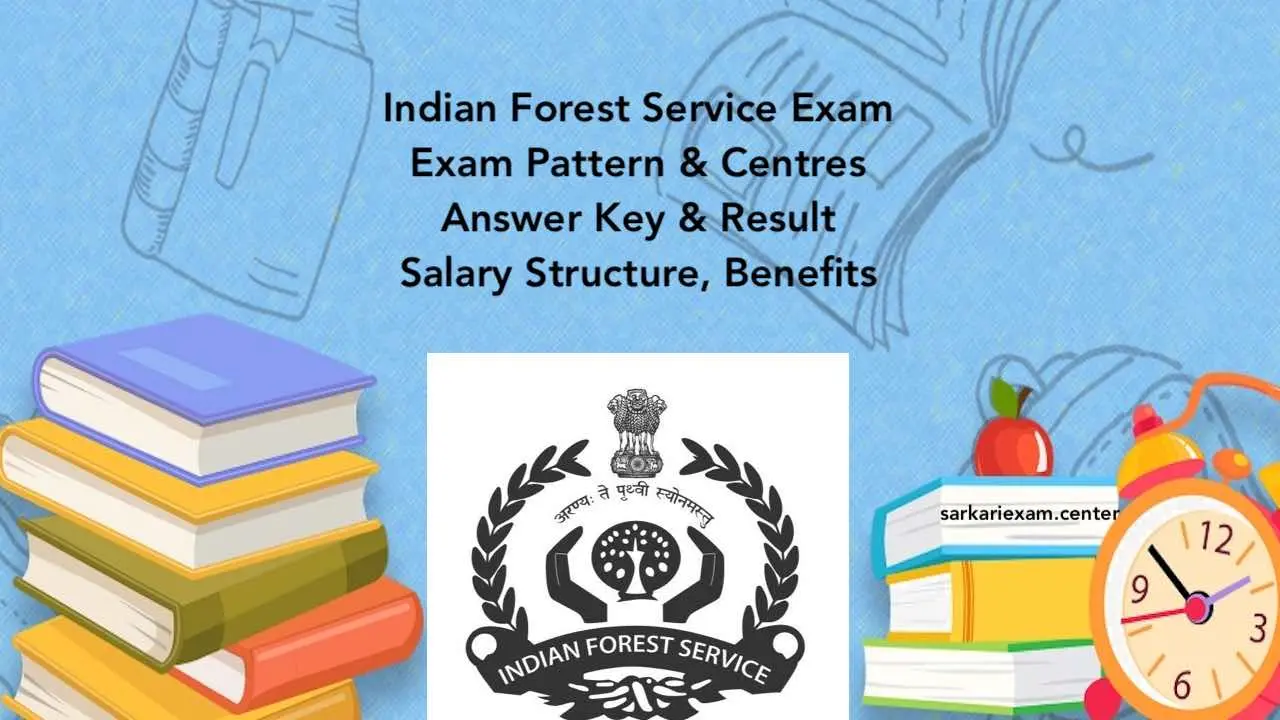The Indian Forest Service Exam represents one of India’s most prestigious career opportunities for those passionate about environmental conservation and forest management. UPSC has released the IFS notification, with applications open from January 22 to February 11, making this the perfect time to understand everything about this coveted examination.
What makes the Indian Forest Service examination unique among government jobs? The Indian Forest Service is one of the three All-India Services of the Union Government, alongside IAS and IPS, constituted in 1966 but dating back to 1864. This comprehensive guide covers all aspects of the IFoS exam preparation, from eligibility criteria to career prospects.
What is the Indian Forest Service Exam and Why Should You Consider It?
The UPSC Indian Forest Service examination serves as the gateway to becoming a forest conservation officer responsible for protecting India’s natural heritage. The IFoS exam is conducted by UPSC to recruit officials who implement national forest policy and scientifically manage forest resources.
Forest service officers play a crucial role in environmental protection, wildlife conservation, and sustainable development. They work directly with forest communities, conduct research on forest ecology, and develop strategies for biodiversity preservation. The service offers both professional growth and the satisfaction of contributing to environmental sustainability.
Key Responsibilities of Indian Forest Service Officers
IFS officers handle diverse responsibilities including forest resource management, wildlife protection programs, environmental impact assessments, and community forest development projects. They also participate in policy formulation, international environmental agreements, and climate change mitigation initiatives.
Indian Forest Service Exam Eligibility: Who Can Apply?
Understanding IFoS eligibility criteria helps candidates determine their qualification status before starting preparation. Applicants must be between 21 and 32 years of age to be eligible, with age relaxations available for reserved categories.
| Category | Age Limit | Age Relaxation |
|---|---|---|
| General | 21-32 years | None |
| OBC | 21-35 years | 3 years |
| SC/ST | 21-37 years | 5 years |
| PwBD | 21-42 years | 10 years |
Educational Qualifications for IFS Exam
Candidates must possess a Bachelor’s degree from a recognized university in any discipline. Those with science backgrounds, particularly in forestry, botany, zoology, or environmental science, often find the forest service exam syllabus more aligned with their academic preparation.
Physical fitness standards also apply, including specific height and chest measurements for male and female candidates. Medical examinations assess visual acuity, color vision, and overall health status required for fieldwork in forest areas.
How is the Indian Forest Service Exam Pattern Structured?
The IFoS exam pattern follows a three-stage selection process designed to evaluate candidates’ knowledge, analytical skills, and personality traits. The result is released in 3 stages: prelims, mains, and final stage, with candidates qualifying one stage being eligible for the next.
Stage 1: Preliminary Examination
The preliminary exam consists of two objective papers: General Studies and Civil Services Aptitude Test (CSAT). Both papers carry 200 marks each, but CSAT serves as a qualifying paper with a minimum 33% requirement. The IFS prelims exam tests candidates’ knowledge of current affairs, history, geography, polity, economy, environment, and basic reasoning abilities.
Stage 2: Main Examination
The mains exam includes Papers I and II worth 300 marks each, while Papers III, IV, V, and VI carry 200 marks each, with candidates choosing two optional subjects from the approved list.
| Paper | Subject | Marks | Duration |
|---|---|---|---|
| Paper I | General English | 300 | 3 hours |
| Paper II | General Knowledge | 300 | 3 hours |
| Paper III | Optional Subject 1 | 200 | 3 hours |
| Paper IV | Optional Subject 1 | 200 | 3 hours |
| Paper V | Optional Subject 2 | 200 | 3 hours |
| Paper VI | Optional Subject 2 | 200 | 3 hours |
Stage 3: Personality Test
The final stage involves a personality test worth 300 marks, where candidates face an interview panel assessing their knowledge, personality, and suitability for forest service responsibilities. The interview evaluates leadership qualities, decision-making abilities, and commitment to environmental conservation.
What Does the Indian Forest Service Syllabus Cover?
The comprehensive IFoS syllabus encompasses subjects ranging from general studies to specialized forestry topics. Understanding the syllabus structure helps candidates plan their preparation strategy effectively.
Preliminary Exam Syllabus
Paper I covers Indian history, world geography, Indian polity, economic and social development, environmental ecology, and general science. Current events, national and international affairs, and government schemes form significant portions of the syllabus.
Paper II focuses on comprehension, logical reasoning, analytical ability, decision-making, problem-solving, basic numeracy, and data interpretation. This paper tests candidates’ aptitude rather than subject knowledge.
Main Examination Subject Areas
The mains syllabus includes diverse topics like Indian language, English language comprehension, essay writing, general studies covering governance, international relations, technology, economic development, biodiversity, and disaster management.
Optional subjects include agriculture, animal husbandry, anthropology, botany, chemistry, economics, forestry, geography, geology, mathematics, physics, statistics, and zoology. Candidates often choose subjects aligned with their academic background or personal interest.
Indian Forest Service Salary and Career Benefits: What Can You Expect?
The IFS officer salary structure makes it one of the most attractive government careers in India. Indian Forest Service Officer salary starts at INR 56,100 and increases to INR 2,25,000, with regular increments and promotional opportunities.
Salary Structure and Grade Pay
The starting IFoS salary at Junior Time Scale level is INR 56,100, with subsequent increases based on promotions and advancements within the service. Officers receive grade pay, dearness allowance, house rent allowance, and various other benefits.
Senior positions like Chief Conservator of Forests and Principal Chief Conservator can earn up to INR 2.25 lakhs per month, making it financially rewarding for long-term career growth.
Additional Benefits and Perks
Forest service offers numerous benefits including government accommodation, medical facilities, travel allowances, vehicle maintenance, education allowances for children, and pension schemes. Officers also get opportunities for international postings, research collaborations, and specialized training programs.
How to Prepare Effectively for the Indian Forest Service Exam?
Successful IFS exam preparation requires a structured approach combining conceptual understanding, current affairs awareness, and consistent practice. Creating a realistic study schedule helps manage the vast syllabus effectively.
Subject-wise Preparation Strategy
For general studies, focus on NCERT textbooks for basic concepts, current affairs magazines for recent developments, and standard reference books for in-depth knowledge. Practice previous years’ question papers to understand exam patterns and difficulty levels.
Optional subject preparation should emphasize understanding fundamental concepts rather than rote learning. Choose subjects based on your academic background, availability of study materials, and guidance quality rather than popularity among other candidates.
Time Management and Revision Techniques
Effective time management involves allocating sufficient time for each subject while maintaining balance between new topics and revision. Regular mock tests help identify weak areas and improve time management skills during actual examinations.
Create concise notes for quick revision, use mind maps for complex topics, and maintain a current affairs diary for regular updates. Group study sessions can help discuss difficult concepts and share different perspectives on various topics.
What Career Opportunities Await IFS Officers?
The Indian Forest Service career path offers diverse opportunities in forest conservation, wildlife management, environmental policy, and international cooperation. Officers can specialize in areas like forest research, eco-tourism development, or climate change mitigation.
Departmental Roles and Responsibilities
IFS officers work in various capacities including Divisional Forest Officers, Conservators of Forests, Chief Wildlife Wardens, and Directors of forest research institutes. They handle forest administration, wildlife protection, eco-development projects, and environmental education programs.
Senior officers often get opportunities to work with international organizations, contribute to environmental policy formulation, and lead major conservation initiatives. The service also provides platforms for research publication and academic collaboration.
Specialization Areas in Forest Service
Officers can specialize in forest ecology, wildlife biology, forest economics, social forestry, forest pathology, forest entomology, wood science, or environmental monitoring. These specializations open doors to research positions, consultancy roles, and international assignments.
Frequently Asked Questions About Indian Forest Service Exam
Candidates need a Bachelor’s degree from a recognized university in any discipline. Science graduates, particularly those with forestry, botany, or environmental science backgrounds, often find the syllabus more manageable.
General category candidates get six attempts, OBC candidates get nine attempts, and SC/ST candidates have unlimited attempts until the upper age limit. The number of attempts helps candidates improve their preparation and performance over time.
The success rate varies annually but typically remains around 0.1-0.2% due to limited vacancies and high competition. However, dedicated preparation and consistent effort significantly improve individual chances.
Yes, candidates can apply for both examinations in the same year as they have separate application processes and exam schedules. Many candidates use this strategy to maximize their opportunities.
Selected candidates undergo comprehensive training at the Indira Gandhi National Forest Academy in Dehradun for approximately two years, covering theoretical knowledge, practical fieldwork, and administrative procedures.
Yes, officers can pursue higher education through study leave, foreign training programs, and research fellowships. Many officers complete PhD degrees or specialized courses during their service career.
IFS officers retire at age 60, with opportunities for extension in exceptional cases. The service provides pension benefits and medical facilities post-retirement.
While the preliminary exam is common with Civil Services, the IFS main examination has different papers and syllabus focusing on forestry and environmental subjects rather than administrative topics.
References and Additional Resources
- Union Public Service Commission Official Website
- Drishti IAS – Indian Forest Service Guide
- BYJU’S – UPSC Indian Forest Service Exam
- Testbook – Indian Forest Service Exam Pattern
- College Search – Indian Forest Service Salary Structure


